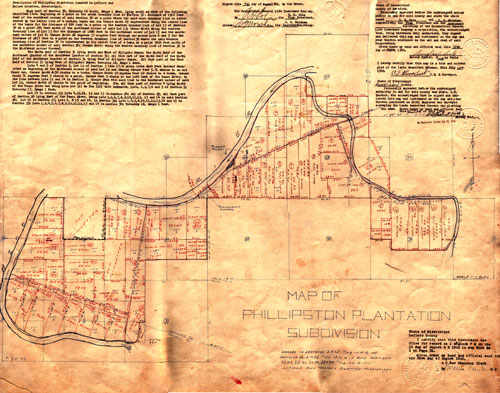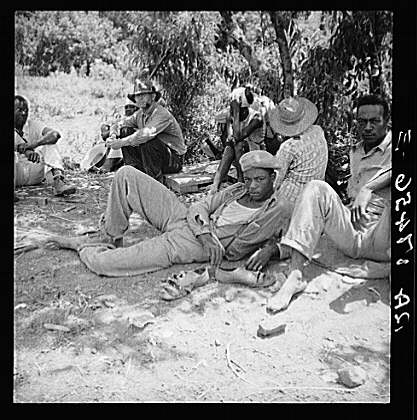| home | pg. 1 | pg. 2 | pg. 3 | pg. 4 | pg. 5 | pg. 6 | pg. 7 | pg. 8 | pg. 9 | pg. 10 | pg. 11 | Map of FSA Projects | Map of Transylvania | notes | Transylvania detail 1 | Transylvania detail 2 | Wolcott detail | Bibliography | D. Gorton Homepage | Jane Adams Homepage
|
|
by
Jane Adams
D. Gorton
Paper given at the Joint Meetings of the Agriculture, Food and Human Values Society and the Association for the Study of Food and Society, Boston University, June 7-11, 2006
|
We have one more piece of evidence that blacks (and possibly whites) were displaced by these projects. Nelson (1999:219)[9] writes of Oscar Johnston’s opposition in 1942 to the FSA, Even more outrageous to Johnston was the FSA's practice of land acquisition. Although agricultural appropriation legislation for 1942 forbade FSA land purchases, a practice in effect for years, the agency still managed to acquire holdings indirectly. Johnston's classic and oft-cited example was that of the well-known Phillipston Plantation in Leflore County, Mississippi. When Connecticut General Life Insurance Company acquired the half-century-old plantation in the Great Depression, it retained Phillipston's black and white tenants, some of whom had resided there for forty or more years. Approached by FSA in 1942, however, Connecticut General sold out, not to the FSA -- because of legislative prohibition -- but to fifty or so FSA-acquired families to whom FSA loaned the requisite funds to purchase the tract. Phillipston's sixty-seven-year-old manager was let go, as was the entire roster of seventy-six tenant families. Invited to the property by neighbors, Johnston said he heard pathetic and heartrending stories from evicted tenants who had to be off the property by the end of 1942. |
 Plat of Phillipston Plantation, scanned in the LeFlore County, Mississippi, courthouse by the authors, 2005. The plantation lies in LeFlore and Holmes Counties, and was sold by Connecticut General Life Insurance Company. |
| Johnston testified in the famous 1943 Congressional subcommittee hearings that such occurrences were common, and his claim, despite being made to argue for the elimination of the FSA, appears to be well-founded. | 
Lunchtime for cotton hoers, Mississippi Delta. Dorothea Lange, June 1937. LC-USF34- 017456-E. Note integrated work crew, with white and black men eating together. This is congruent with oral testimony we heard from many white former sharecroppers and day laborers.
|
|
home | pg. 1 | pg. 2 | pg. 3 | pg. 4 | pg. 5 | pg. 6 | pg. 7 | pg. 8 | pg. 9 | pg. 10 | pg. 11 | notes | Map of FSA Projects | Transylvania detail 1 | Transylvania detail 2 | Wolcott detail | Bibliography |
|